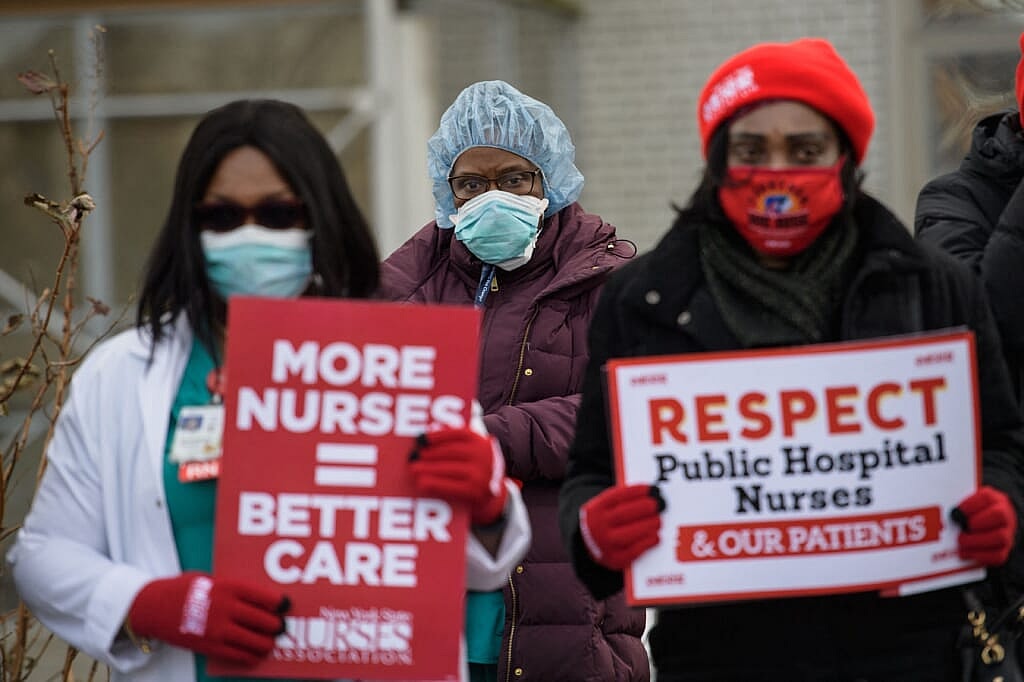Black and Brown employees of federal contractors are expected to see as much as $3,500 per year in pay increases due to a Biden Administration executive order that took effect on Sunday.
Many federal contractors who started contracts before the order was issued will now be required to raise employees wages to the minimum standard set — $15 an hour.
“The U.S. labor market, unfortunately, is still a racist institution, and what that means is that it underpays people of color,” Ben Zipperer, an economist at the Economic Policy Institute told theGrio.
According to the EPI, up to 390,000 federal contractors are poised to see wage increases from this executive order, and 200,000 are Black or Latinx. The total annual increase in pay for Black and Latinx workers is estimated to be $692 million.
Policy experts are enthusiastic about the order and its potential to promote economic advancement.

“We’re very hopeful that the vast majority of these workers will see some sort of pay increase on a relatively quick scale,” Anastasia Christman, senior policy analyst at the National Employment Law Project told theGrio.
Unlike a federal minimum wage where there is a specific date that requires everyone to automatically get paid $15 or more, this executive action occurs on a rolling basis due to several factors.
An agency or contractor has the option to comply immediately with the executive order or wait until there is a new action made on their existing contract. Also, if a contract is renewed or expanded this will prompt the raises.
Initially, a similar executive order under the Obama administration issued the minimum wage increases, but only for brand new contracts. Experts believe the Biden administration’s update will allow raises to cover the landscape of federal contractors and their employees due to the order taking effect after any kind of contract action triggers the pay increase.
“Executive Order 14026 improves the economic security of families and makes progress toward reversing decades of income inequality,” Jessica Looman, Acting Wage and Hour Division Administrator at the Department of Labor said in a statement to theGrio.

“Our proposed regulations to implement President Biden’s Executive Order will ensure taxpayer dollars uphold the dignity of work, and provide a living wage to workers on federal contracts, including cleaning, maintenance, nursing and food service workers whose efforts are critical to the nation’s pandemic recovery.”
While Christman is excited to see the order’s transformational impact, she cautions that a close eye must be kept on whether federal contractors are complying and operating with practices that are fair to workers.
“The federal government can raise the minimum wages. But if the workers aren’t actually getting those wages, if the employers are engaging in illegal labor practices, it almost doesn’t matter,” Christman warned.
According to a recently released study from the Center for American Progress, “federal contractors agreed to pay approximately $224 million in back wages to workers on federal service contracts from 2014 to 2019.”
Additionally, the think tank points out that only 2% of federal contractors that violated labor laws were prevented from receiving new contracts.
“If workers are being underpaid, they should contact the Department of Labor,” Zipperer added.
Have you subscribed to theGrio podcasts “Dear Culture” or “Acting Up?” Download our newest episodes now!
TheGrio is now on Apple TV, Amazon Fire and Roku. Download theGrio.com today!


